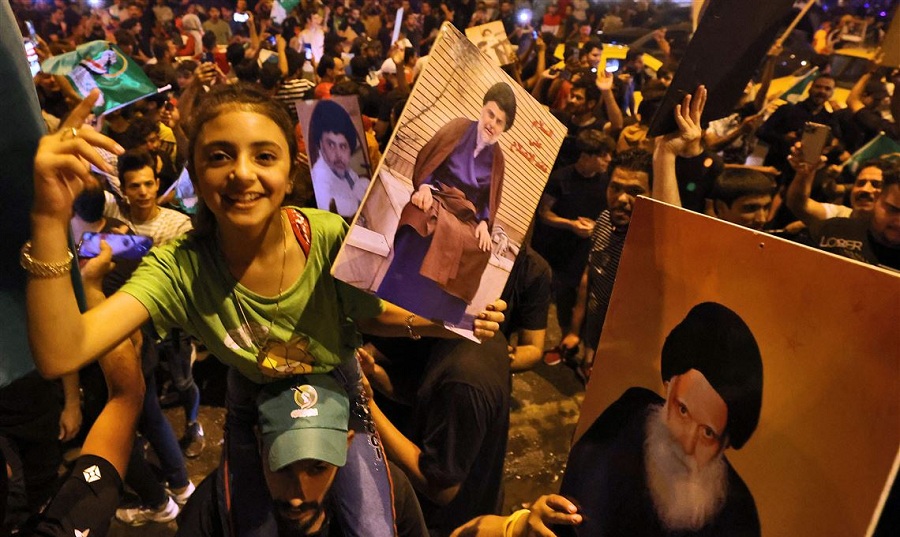Alwaght- Prominent cleric Muqtada al-Sadr’s party has become the biggest winner in Iraq’s parliamentarian election after it swept the vote and increased the number of seats the influential cleric holds in parliament, initial results and officials say.
On Monday evening, a count, based on initial results from a number of Iraqi provinces as well as the capital Baghdad, verified by local government officials, showed that Sadr’s party, known as the Sadrist Movement, had managed to secure more than 70 of the 329-seat parliament.
A spokesperson for Sadr's office also said that the number was 73 seats, and local news outlets also published the same figure.
Following the release of the preliminary results, the cleric broadcast a live speech on state television, declaring victory and promising a nationalist government free of foreign interference.
“We welcome all embassies that do not interfere in Iraq's internal affairs,” said Sadr, who opposes all foreign interference in Iraq, adding that celebrations would take place in the streets “without weapons.”
The Shiite scholar, who has been a dominant figure in Iraqi politics since the US invasion in 2003, has boosted his power in the Arab country since coming first in the 2018 election, in which his coalition - the biggest bloc Sairoon - secured 54 seats.
Sadr’s party, however, is far from being able to form a government on its own and it needs to form a coalition with some other parties.
Former Prime Minister Nouri al-Maliki, who led Iraq from 2006 to 2014 and heads the State of Law Alliance, looked set to have the next largest win among Shiite parties, initial results showed.
The Iraqi people voted in their country’s parliamentary elections on Sunday to decide the 329 members of the Council of Representatives who will, in turn, elect the president and confirm the prime minister.
More than 25 million citizens on Sunday were eligible to vote on Sunday. More than 3,240 candidates were in the running, including 950 women.
One-quarter of the seats are reserved for female candidates, and nine for minorities including Christians and Izadis.
The electoral commission said the initial turnout was 41 percent, a little lower than the total turnout in the last election in 2018, which was 44.5 percent.
The elections were originally planned to be held in 2020, but the date was brought forward in response to a mass protest movement that broke out in 2019 to call for economic reforms, better public services, and an effective fight against unemployment and corruption in state institutions.
The vote took place under a new election law that divides Iraq into smaller constituencies, another demand of the protesters, and allows for more independent candidates. Around 600 international observers, including 150 from the United Nations, monitored the voting process.
The Arab country has held five parliamentary elections, all of which were won by coalitions dominated by the Shiite majority, since the fall of dictator Saddam Hussein in the US-led invasion.



























